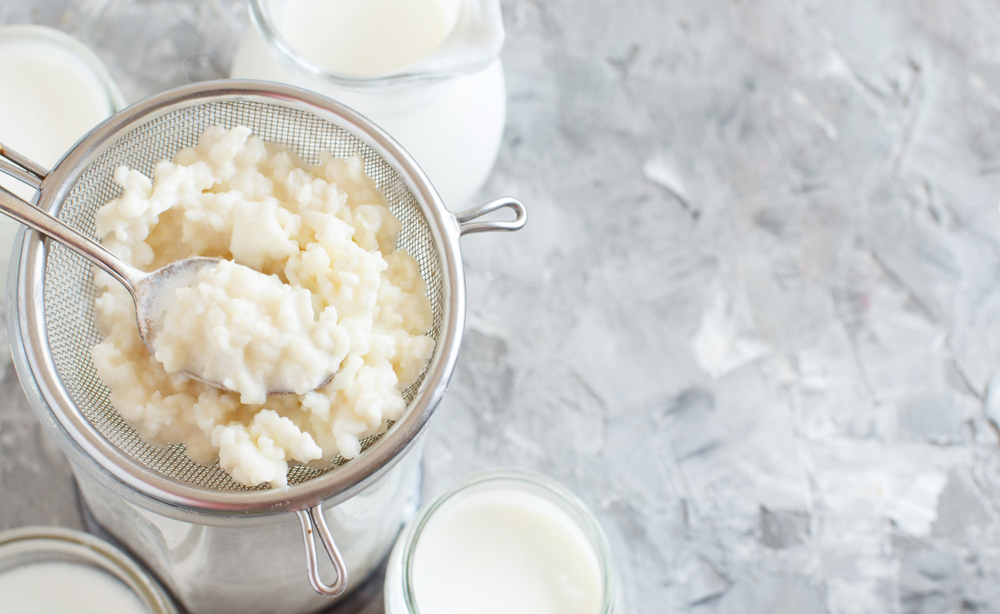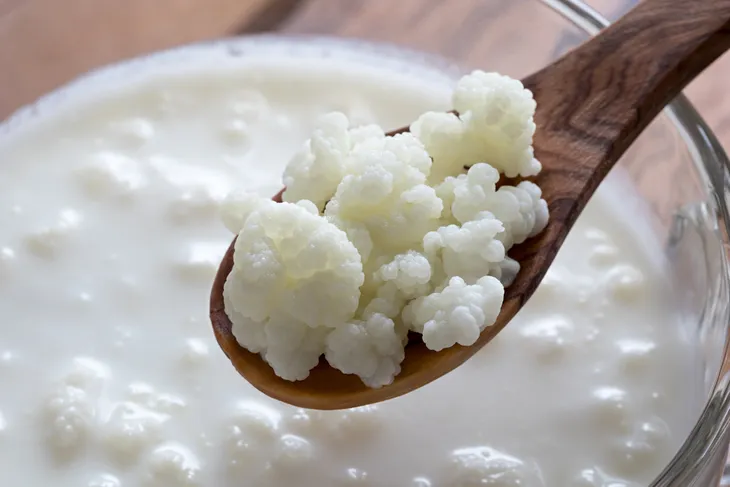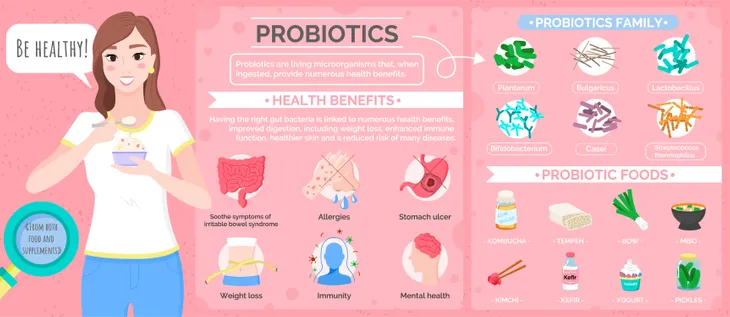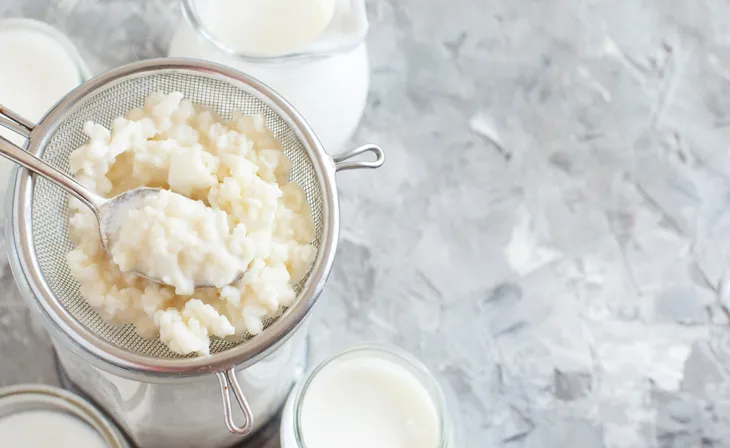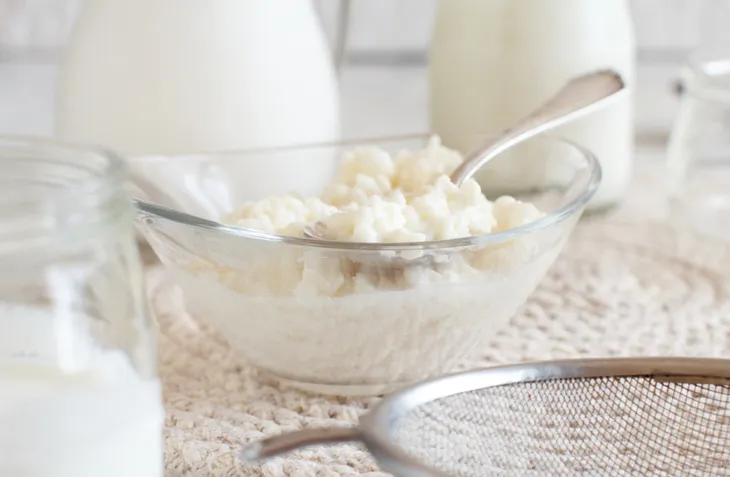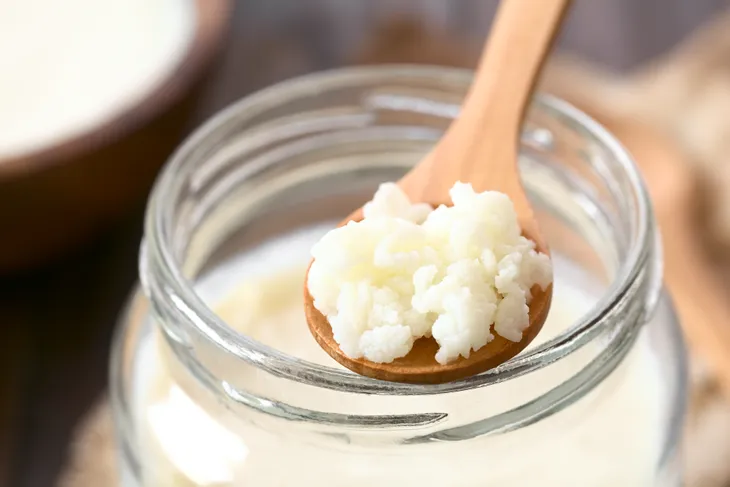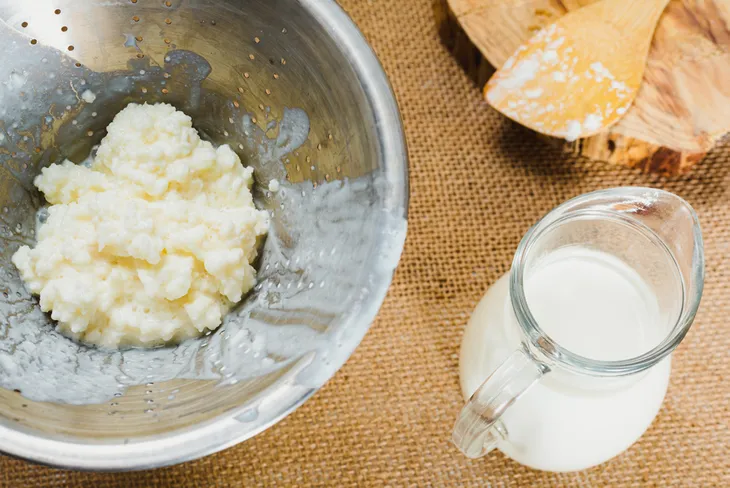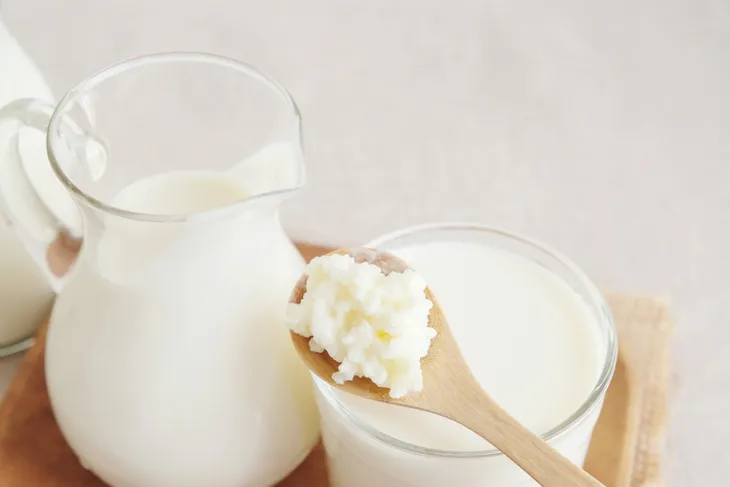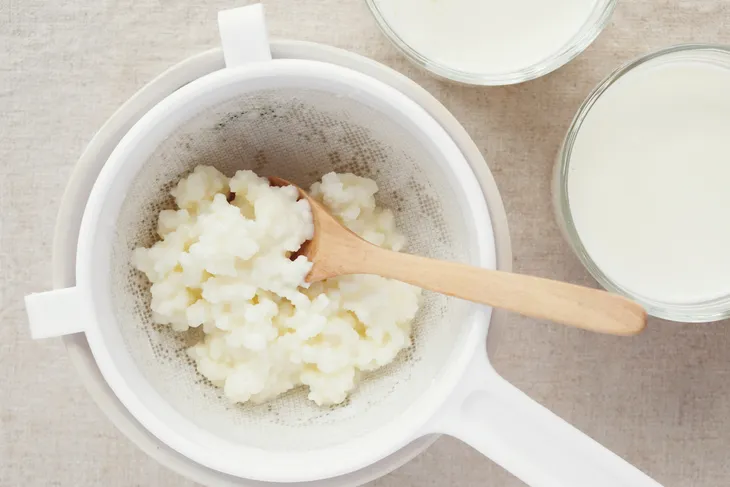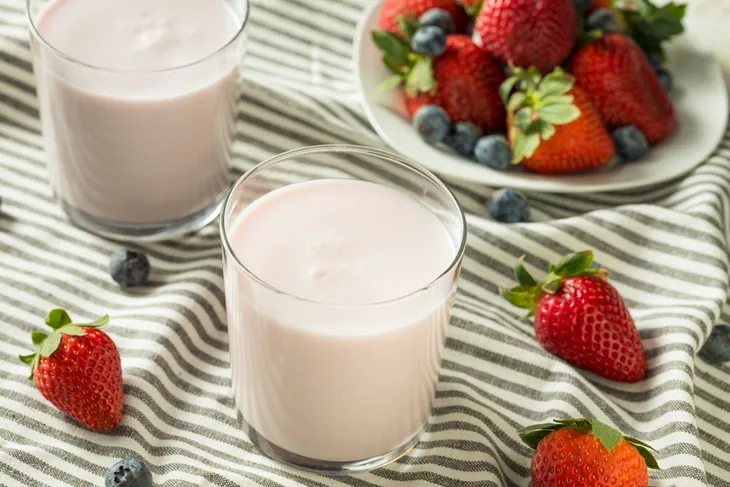These days we’re all crazy for fermentation. We’ll take it anyway we can get it, be it pickles, kimchi, or kombucha! However, a favorite of late has to be Kefir. This delicious dairy drink tastes similar to yogurt, but with a consistency closer to milk that offers an excellent nutritional profile.
You’ve probably heard about kefir before (and maybe you’ve even tried it for yourself), but perhaps you haven’t heard what’s really going on behind the scenes in this delicious, nutritious ‘living’ beverage. So let’s get up close and personal with this fantastic fermented drink. Here are ten things to know about kefir…
It All Starts With Grains
Kefir production all starts with kefir grains, which despite their name, aren’t actually a type of cereal grains like we would think. Kefir grains are small rubbery bits that have a gummy bear-like texture and are used to start the fermentation process when making milk kefir.
These rubbery bits are actually masses of live probiotic bacteria. The bits are responsible for creating more of the healthy gut bacteria we want.
Billions of Probiotics
Kefir is a source of probiotics, which are gut friendly bacteria that occur naturally in our bodies. These live bacteria help stop the growth of harmful bacteria and boost our immune systems, protecting us from all sorts of germs and illness.
Yogurt is perhaps the most well known source of healthy probiotic bacteria. However, kefir actually contains three times as many probiotics as yogurt making it a virtual goldmine of friendly gut bacteria.
A High Source of Calcium
We all know that calcium is essential for bone health and is especially important for women. While most dairy products are known to be good sources of calcium, kefir is no exception.
Each 175-gram serving of kefir contains approximately 20-percent of the recommended daily amount of calcium. Replacing a serving of dairy with a serving of kefir means you’ll get not only calcium but a dose of healthy probiotic bacteria as well.
The Two Types of Kefir
There are actually two types of kefir available: milk kefir and water kefir. As the names imply, milk kefir is made from dairy and non-dairy milks (such as coconut milk), and water kefir is made from water.
Water kefir is not thick or yogurt-like in consistency like a milk kefir. However, this type is great for people who want the benefits of kefir’s probiotic bacteria, but are sensitive to dairy. You can also find water kefir made from coconut water or fruit juices, which make for some interesting fruity spins on this fermented beverage.
Packed with Protein
Getting enough protein is something a lot of us think about in terms of our daily diets and people are often looking for non-meat sources of protein to incorporate into their healthy diets. Luckily, kefir is a great low calorie source of protein and 1 cup of whole milk kefir contains about 10 grams of protein and only 100 calories.
Adding a serving of kefir to your morning smoothie recipe and coupling it with your favourite protein powder means a protein-packed breakfast shake that will help keep you fuller for longer.
Helps Digestion
There is lots of research still underway that looks at the benefits of probiotics. One benefit that gets a lot of buzz is the way healthy bacteria is able to aid with digestion and other gastro-related issues.
Probiotics are often used to treat bloating, cramps, gas, and diarrhea, which can be side-effects of taking antibiotic medications. These medications not only kill the bad, but also the good bacteria in our digestive systems causing things to become a bit unsettled. Getting probiotics from food sources like kefir helps restore the natural digestive balance in our bodies.
You Can DIY
Commercially-produced kefir is widely available today and can be found in most supermarkets and health food shops. However, it’s actually easy to make your own kefir right at home using only a few necessary ingredients.
All you really need is some milk, a large clean jar, a fine mesh strainer, wooden spoon and some kefir grains. After that it’s as easy as three simple steps until you’ve got your own homemade kefir beverage. For full detailed instructions on making your own kefir, check out this helpful article.
Tired like Turkey
We’re all familiar with that sleepy, satisfied feeling after a big Thanksgiving meal. That’s partly due to eating turkey, which contains Tryptophan, an amino acid that usually makes us feel sleepy or relaxed.
This same amino acid is actually found in kefir, making it a ‘mood-food’. While you won’t feel that same feeling of being stuffed full as you would after a turkey feast, you may feel relaxed after consuming a serving of tryptophan-containing kefir.
Great Source of B Vitamins
B vitamins are essential for good health and optimum bodily function, but did you know kefir contains several important B vitamins in addition to all that other good stuff? Kefir contains B12, which plays a key role in the normal function of our brain and nervous system as well as the formation of blood.
Kefir also contains vitamin B1, also known as Thiamine. A Thiamine deficiency can lead to all sorts of disorders and negative health impacts, especially those involving our nervous system.
You Can Get Creative
With kefir, there are virtually no limits. Using the same basic formula you can make all sorts of fermented concoctions. Just watch out for flavored commercial brands, which can contain added sugar leading to unnecessary calories. Water kefir can be made from plain water, coconut water, or even fruit juice. Milk kefir can be made from dairy, coconut milk, or even nut milks.
You can also find (and make) fruit-flavored kefir by adding fruit and other flavorings during the secondary ‘ripening’ stage once the grains are strained out, or you can blend fruit right into your kefir once it’s ready. Either way, the possibilities are seemingly endless!
